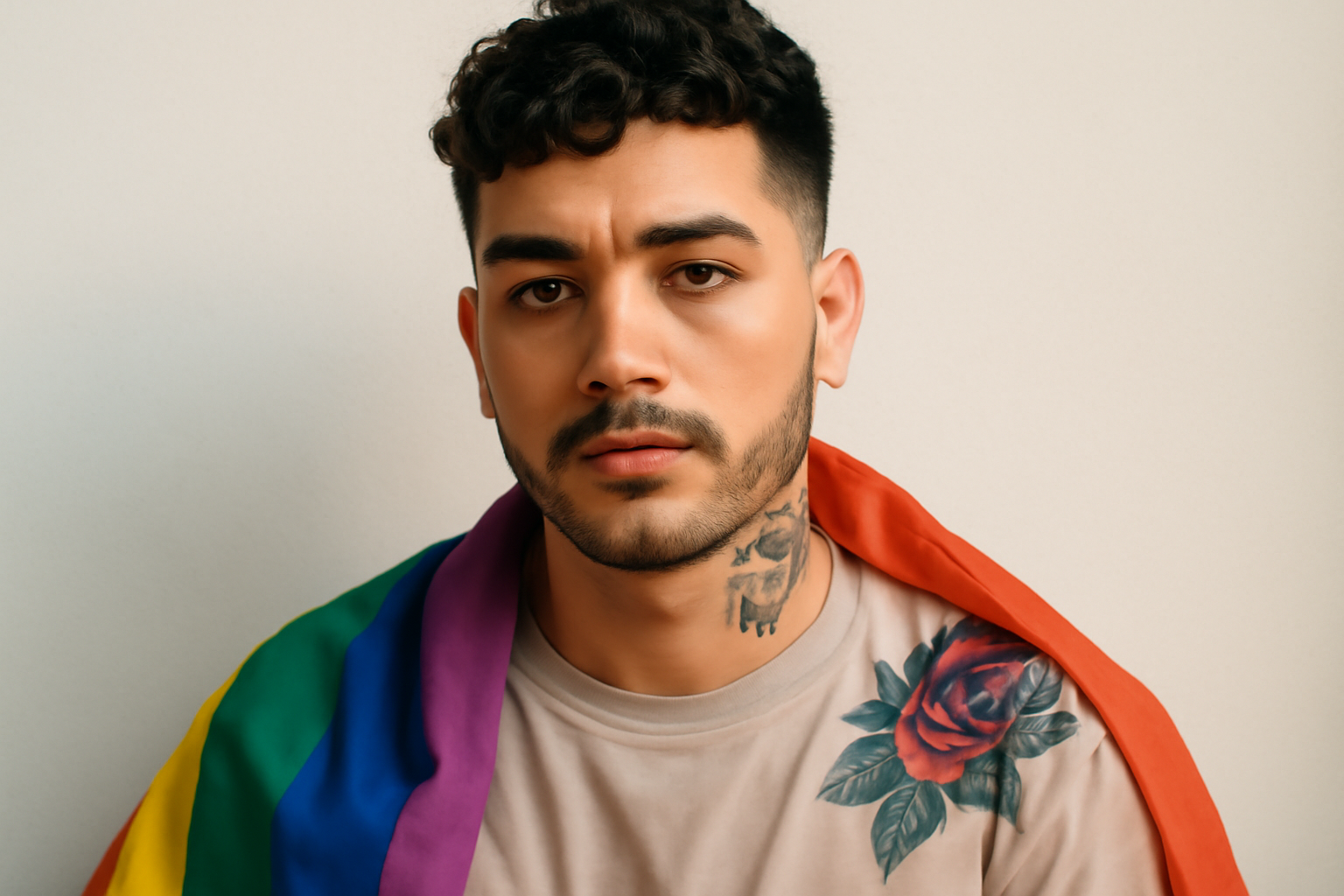
In a troubling development, a gay makeup artist from Venezuela has been unjustly deported to a detention facility in El Salvador under the false claim that his tattoos are associated with gang activity. Recent reports have shed light on this grave injustice, which has placed the individual in an environment notorious for human rights abuses.
This Venezuelan man is among 260 individuals who were accused by the U.S. administration of being members of Tren de Aragua, a group labeled as a terrorist organization. However, Venezuela's interior minister has publicly stated that none of these deportees are affiliated with the group.
"Misinterpreted Tattoos"
The deported individual's attorney, Lindsay Toczylowski, who serves as the founder and president of the Immigrant Defenders Law Center, spoke to MSNBC host Rachel Maddow. She emphasized that the tattoos in question do not signify any gang affiliation. "These are common tattoos, similar to those you might see on anyone at a coffee shop in the United States or Venezuela," Toczylowski explained.
Toczylowski further described her client as a professional makeup artist who had sought refuge in the United States to escape anti-LGBTQ+ persecution at home.
"Legal Obstacles and Human Rights Concerns"
U.S. Immigration and Customs Enforcement (ICE) confirmed to Toczylowski that her client had been deported without a formal removal order. The presiding judge queried the ICE attorneys about this oversight, to which they reportedly responded, "I don't know." ICE has also refused to facilitate any communication with the deported individual or to make him available for future court proceedings, effectively blocking his legal options.
"We are pursuing every possible avenue because our client's life is at considerable risk," Toczylowski told Maddow, expressing deep concern over the lack of due process and the potential danger her client faces.
"A Presidential Overreach and Legal Battles"
The president recently revoked the asylum status of 530,000 individuals from Cuba, Haiti, Nicaragua, and Venezuela. This move, which contradicts policies enacted by the previous administration, places these individuals at risk of mass deportation without legal hearings, under the Alien Enemies Act of 1798. This law allows for the deportation of foreign nationals during times of declared conflict, yet Congress has not declared such a conflict.
Federal courts are now challenging these revocations. U.S. District Court Judge James Boasberg has stated that even undocumented immigrants are entitled to individual hearings before deportation. He condemned the administration for denying due process to those deported to facilities known for severe human rights violations.
"Constitutional Rights at Stake"
Judge Boasberg's ruling is grounded in the 14th Amendment of the U.S. Constitution, which ensures "equal protection of the laws" for all individuals within U.S. jurisdiction, irrespective of their immigration status. Despite some political opposition, this constitutional protection is a key point in the ongoing legal fight.
The administration has been ordered to halt flights deporting individuals to El Salvador until further explanation is provided. However, compliance with this order remains uncertain.
"Conditions in El Salvador's Detention Center"
Upon arrival in El Salvador, deportees, including the Venezuelan makeup artist, face harrowing conditions. Photojournalist Philip Holsinger described a militarized reception and subsequent transport to the Terrorism Confinement Center, a facility notorious for its overcrowding, lack of basic amenities, and routine torture practices.
According to Human Rights Watch, detainees are often isolated, denied medical care, and subjected to unsanitary conditions. Inmates have minimal contact with family or legal representatives, with some kept in darkness for extended periods.
Holsinger recounted scenes of humiliation and fear, as detainees were forcibly stripped, shaved, and confined in overcrowded cells. One young man reportedly cried, "I’m not a gang member. I’m gay. I’m a barber," highlighting the tragic misunderstanding and abuse faced by many.
The situation is a stark reminder of the urgent need for fair treatment and legal protection for all individuals, regardless of their nationality or immigration status, as part of upholding fundamental human rights.
Subscribe to our newsletter for more updates and insights on issues affecting the LGBTQ+ community worldwide.
Related Posts
Triumphant Trans Woman Wins Legal Battle and Inspires Others to Stand Up for Their Rights
Breaking new ground: a landmark victory in transgender rights After battling in courtrooms and enduring endless challenges, Diana Portillo, a transgender woman, has secured a monumental victory in her decade-long fight against workplace discrimination. The result? Nearly $1 million awarded in a historic settlement. But this isn't just a win on paper—it represents a powerful precedent in combati [...]
Pride Month in Latin America: Protests and Demands for Equality
**Celebrating Pride and advocating LGBTQ+ rights in Latin America** Pride Month in Latin America was a lively mix where celebration met activism. Communities united, not just throwing a party but making a stand—demanding equality and pushing governments toward better protection and rights recognition. Throughout Latin America, pride events erupted in marches and cultural displays, each with a c [...]
Transgender Erasure Actions Implemented by National Park Service
```html Trump administration's impact on national park service and transgender recognition The Trump administration made notable moves in undermining transgender representation, which included directing agencies like National Park Service not include "T" and "Q" when they refered “LGBTQ” in any official communication. This move seems part a broader plan by this administration aimed at reducin [...]